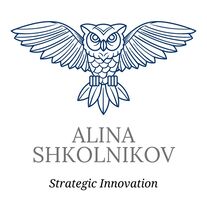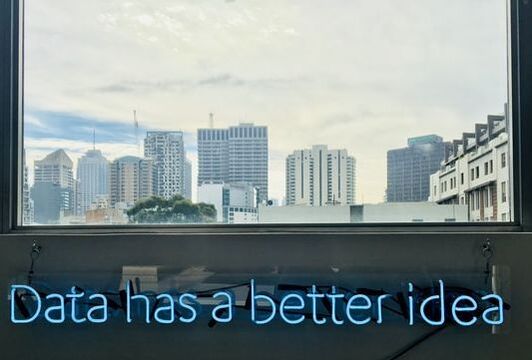|
The 2019 Sustainable Investing Conference, held at the United Nations Headquarters in December was truly, as promised, a gathering of exceptional financial experts and ESG industry professionals. All of whom came together to discussion the latest issues and trends surrounding sustainable, impact, and ESG (Environmental, Social, and Governance) investing. GPS destination: impact - Jeff Gitterman, Co-founding Partner at Gitterman Wealth Management led the conference and set the tone for the day nudging professionals in the financial world to provide investors with a GPS - setting positive social and environmental impact as the destination via full data sets and extensive information. This GPS was set over a decade ago and the first wave of the phenomena known as ESG investing was in 2008, at the peak of the global financial crisis. We are currently experiencing the second wave, resulting from geopolitical unrest, climate change and the rapid growth of social challenges around the world. Over this past decade we are seeing that ESG aligned investment management is proving to be more competitive, ensures better management and showcases lower systematic risk. In a world where CEOs are finally being removed from office because of inappropriate behavior, the ESG and impact discussion is clearly no longer “just” an ethical argument and has crucial implications for financial resilient. These are the core assumptions behind responsible capitalism, driven by a new social understanding of the role of capital and proving to be subject to superior risk management. David Yawman, Executive Vice President, Government Affairs, General Counsel and Corporate Secretary at PepsiCo, Inc. explained how this is manifested within a corporation: employees care about the social commitment of their corporation, customers care how their products are made and the communities the corporation is based out of care about the way it interacts with them. And, finally stakeholders also care, pushing PepsiCo to create a Public Policy and Sustainability committee on their board. All aimed at taking the next step - from compliance to compliance and ethics. When one needs to report to the board on actual policy changes it becomes more challenging to green wash, thus PepsiCo is now undertaking strategic processes to understand one of their biggest environmental hazard: plastic bottles. On the social side it’s clear PepsiCo sees great new opportunities in engaging with their supply chain operators (internal and external) around key issues such as human rights. A driving force in both supply and demand in this market are millennials and they are meant to have 30 trillion dollars transferred to them in the near future. Money that might go into different pockets of capital but can, in both cases (donations and investments) be leveraged via impact and ESG finance. As Curt Bassett, CEO and Founder of The Third Impact noted - impact investing is a great opportunity for investors, philanthropists and wealth managers to engage the next generation of generational wealth. Finally, we must remember that the only way to know if we got to our set destination is by actually measuring social and environmental outcomes and impact (positive and negative) - as we envision a global economy that serves everyone. Kathlyn Collins, ESG Research Analyst at Matthews Asia spoke specifically about the Asian markets, reviewing the challenges and opportunities presented as well as the unique data sets that can be used in this context. Based on current data trends it is clear there is growth in the healthcare markets and innovation within future carbon free economies. Simultaneously an educated middle class is growing, show casing greater productive, more political awareness and connecting to the digital world. Data sets on carbon emissions and protein consumption can be used alongside new large scale research that is currently being developed to evaluate positive and negative impact of corporations in the region. These data sets can lay the groundwork for regulatory changes towards a compulsory ESG reporting systems China is planning to adopt into law. Keynote: Elliott Harris – United Nations Chief Economist In setting out the Sustainable Development Goals (like the Millennium goals before them) the UN send a clear message: public markets alone can’t solve the challenges we are facing in our world today. Public markets need products they are sure of (with new products having long adaptation cycles) but, they know how to work with stretch, long term, goals. Meaning – the global public sector needs the privet sector and vice versa, making public private partnerships a great match. What can be done by private sector actors? Investors and shareholders can (and should) use sustainability as a tool for decision making and best practices and effective strategies should be shared across sectors. What can be done by public sector actors? Standards need to be developed and set and governments must create a leveled playing fields by stopping subsidize for oil and gas for example. There needs to be a case built - for sustainability and against unsustainability and we need to teach it in all business schools. The investors Many of the asset managers who presented at the conference attested that more and more investors are asking them to move towards responsible investment portfolios. What is needed by investors? Stewardship, leaning on easy terminology and simplification. Basic terms such as ABC (Act to avoid harm, Benefit stakeholders and Contribute to solutions) and simple agreed upon metrics (such as the IMP, a methodology created by the Impact Management Project) make it earlier for interested parties to find their way in. Andrew Lee, Managing Director at UBS made a bold statement: If you are not talking to your clients about ESG someone else will. Active approaches - Wealth managers looking for opportunities in fixed income, such as PIMCO, are investing heavily in research and development of relevant tools that will allow them to separate ESG signals from noise. Olivia Albrecht Pieter, Senior Vice President at PIMCO spoke about the great potential that bond issuers have for active engagement with stakeholders, growing the ESG conversation and creating more SDG related bonds. Why ESG? Michael Viehs, Head of ESG Integration in Public Markets at Hermes Investment Management presented an interesting matric explaining this question by suggesting to combine reputation, risk, returns and wider impact. Based on this matric ESG goals can drive outcomes beyond performance. Thus, leading to a reexamination of the corporate cost of capital, its operational performance and the stock performance over time (this is also true for countries). Passive investors – Gerold Koch, Director at DWS provided an interesting counter analogy positioning ESG not as a GPS, for passive investors, but as “self-driving autonomous vehicle”. This is well manifested in ESD indexing. Mona Naqvi, Senior Director of ESG at S&P Dow Jones Indices spoke about the S&P ESG Factor Weighted Index. Indexing provides strong tools for engagement as it encourages transparency and, in the long term, creates incentives that are clear for companies to raise their ESG rating. Based on the index and in line with future trends it seems we are inevitably moving into the direction of ESG weighted decision making. Recently even credit rating giants have started integrate ESG into their rating. Many of the speakers have demonstrated an inclusive approach with active stakeholder engagement as a key strategy, even with companies that don’t even uphold the most basic ESG and impact strategies and fail to act to avoid harm. It seems many prefer active stakeholder investments rather than divestment strategies. The argument made is that active conversations with companies, based on a positive approach rather than negative dialogue, can be as and even more meaningful. Risks Climate risk has taken the front of the stage at the 2019 Sustainable Investing Conference. Christopher Goolgasian, Director of Climate Research at Wellington Management Company, explained how climate risk can be used as a parameter to measure and manage risk in investments. Anything that is in a fixed location can and will be affected by climate change and thus should account for climate risks. Accounting for risk of extreme heat, wildfires, draught and even hurricanes can help price physical assets in a precise manner. This should, in the long term, be translated into country risk assessments as well. Strategies to tackle such risk can be categorized into three: defense (data collection and mapping in advance), offense (adapting to climate change and supporting solutions) and engagement (disclosure on physical and transitional risk). Part of the challenges of risk management in this context stem from the incentive structure of financial experts – they prefer (and are rewarded for) short term wins (3-5 years) while climate risk is a long term problem. Jeffrey Eckel, President and CEO of Hannon Armstrong, spoke of three opportunity areas in this context: decentralization, decarbonization and digitalization (the three Ds) with the future of energy being behind the meter. Climate risk was discussed not only in the E (environmental) of ESG sections but also in the context of its intersection with the S (social), specifically as it effects human rights. Not only for those who are directly affected by global warming but also in areas which will be seeing an influx in climate change refugees and migrants. We can already see that the communities that will disproportionately be effected are often communities that are already underprivileged and marginalized. This is not only a risk factor on the individual or community level but also when discussing sovereign risk (such as in the case of the meat industry in Brazil for example). Noel Pacarro Brown, Managing Member at The Conscious Wealth Management Group encouraged everyone to go deeper beyond the balance sheet and join this movement, speak up and become thought leaders. Photo by Jamie Street on Unsplash
0 Comments
Photo by Anne Nygård on Unsplash Esther Duflo, Abhijit Banerjee, and Michael Kremer have opened a window into the next generation of economics and entrepreneurship: Initiatives designed to solve social and environmental challenges; economic investment for the benefit of all, will have a positive impact on the environment and will eventually return to the investor as well. This month, Professors Esther Duflo, Abhijit Banerjee and Michael Kremer, winners of the 2019 Nobel Prize in Economic Sciences, opened for the world a window to significant social action that is based on research, data, and facts, and can be evaluated and compared. This approach underpins the idea of the next generation of entrepreneurship: Impact entrepreneurship – business entrepreneurship that aims to solve social and environmental challenges. To be an “impact” initiative, an enterprise must conform with three criteria: Intent to produce economic value, alongside social/environmental value, and measurement of its social and economic value. Impact initiatives range from social bonds to solving sweeping societal challenges (such as reducing the dropout rates in Israel’s higher education system), startups that work to address specific challenges (e.g. providing access to water and soap for hand washing in rural areas of southern India), to changing perceptions of real-estate construction (for example, through a neighborhood rehabilitation model that includes rent control for the original residents). For entrepreneurs who seek to benefit the world (and not just their own pocket), measuring social value is always a challenge. It is therefore no wonder that this year’s Nobel Prize in Economics was dedicated to this fundamental issue, and especially to the study of the most effective social interventions in the fight against systemic poverty. The groundbreaking research of Duflo, Banerjee, and Kremer shows that it is precisely the division of big social questions (poverty) into small questions (such as mothers’ motivation to vaccinate their children against malaria) that can yield a clear economic structure of social gain and loss, which can then be quantified against a particular financial investment. That is, a calculation of social and economic return on investment. Why are social and environmental investments important? In addition to the moral claim, there is an economic case to be made. Prof. Paul Romer received the 2018 Nobel Prize of Economics for endogenous growth theory. At its core is a radical idea that aspires to broaden the definition of the term “resource.” In the world of resources, the more people there are, the less resources there are for each person, giving rise necessarily to constant competition, but in the world of ideas, increasing the number of people is a blessing and not a curse. Especially when it comes to ideas that stem from collaborations that could not have been formed in the past – among different countries, different disciplines, etc. Thus, benefitting the lives of others, even if the others are not in “my community” (my city, state, my monetary union), through aid and cooperation, serves the common good. This is another paradigm shift that we clearly see in impact entrepreneurship: Improving social and environmental outcomes benefits not only the direct beneficiaries but also their surrounding community and economy, as well as the investor, their community, and their surrounding economy. Why is it difficult for us to adopt a new economic paradigm, one in which money should not only generate more money for those who already have money (many times, at the expense of others), but rather, one in which money generates money alongside social and environmental value for everyone? Because it seems to us that there is cognitive dissonance at the core of this idea: Money and social action are two things apart. Prof. Richard Thaler, who received the 2017 Nobel Prize for developments in behavioral economics, has shown that just because we think something is right, or we are comfortable believing that it is right, does not make it right. The data we are starting to see in the impact markets (the field has been active for only a decade and is still in its infancy) shows that impact investments often yield market-rate returns and sometimes exceed investors’ expectations. According to a comprehensive report by the Global Impact Investing Network (GIIN), an umbrella organization for the world’s impact investors, 91% of the investors in the field report returns that correspond to their financial return expectations (77%) or exceed them (14%), with 98% reporting that the social/environmental return meets and even exceeds their expectations. At the Edmond de Rothschild Foundation, we have adopted similar approaches to those of the Nobel laureates mentioned above. Like Romer, we believe in investing in innovative entrepreneurial ideas with an emphasis on impact entrepreneurship. Impact entrepreneurship can even further strengthen endogenous growth, as, on the one hand, it drives the growth of ideas that have both positive social and environmental impact, and, on the other hand, it aims to reduce the implementation of ideas with negative impact on humans and the environment. Like Thaler, we place people at the center of every social intervention that we try to implement, thus, we build and strengthen projects around people and communities. Finally, like Duflo, Banerjee, Kremer, we also engage in the collection of data and information and engage in continual assessment of the measurable social profits that we generate in the field, via our leading partners. Now all that remains to be hoped is that the 2020 Nobel in Economics will go to an outstanding researcher for the development of revolutionary and practical theories in the area of risk-return-impact. Original article published in Hebrew on Calcalist Photo by Anne Nygård on Unsplash The AI Sustainable Development Summit 2019 focused on serious questions around artificial intelligence, big data, and data-driven social innovation (28 September, 2019 in NYC). The event consisted of thought leaders and practitioners in AI and sustainable development. Together they explored innovative solutions for the economic, social, and environmental challenges that encompass the 17 Sustainable Development Goals.
Repeating themes revolved around the importance of collecting and analyzing social and environmental data in ways that reflect the communities involved, ownership of the collected data and the best (and worst) ways to utilize it. One of the most inspiring speakers was Dr. Kenneth Strzepek, co-recipient of the 2007 Nobel Peace Prize, as lead writer of the IPCC Report on Climate Change. In his keynote, Dr. Kent raised several important questions including a question we, at the Foundation, ask ourselves often: How do we account for social risk? In the context of impact ventures the questions is: How do we account for social risk alongside financial risk when discussing impact investments? In long term social interventions we must also account for the price of waiting, and not just the price of the intervention and accompanying risk factors. Dr. Kenneth also offered an interesting shift in narrative and suggested we start thinking of AI not just as artificial intelligence (a term that makes many of us this about the Terminator) but rather think of it as assistive intelligence. Finally, when asked: What would be the number one social challenge to invest in today? Dr. Kenneth’s response was aligned with much of the research we are seeing: social interventions focused on girls’ education in emerging markets and developing communities is a solid asset in our joint global future. A fascinating perspective on AI and specifically the elements of data gathering and analyses within social settings was offered by Reem Khouri, the Co-Founder & CEO Whyise - providing organizations with an impact analytics solution. Ms. Khouri honed in on the importance of understanding: What exact data we should (and shouldn’t) collect and why are we collecting this data? Data collection must be aligned with the venture’s Theory of Change and benefit (not harm) its stakeholders. Dr. Senan Ibrahim, Founder and Chairman of Hikma Health, an NGO working with organizations around the world to provide free healthcare to refugees offered an interesting perspective on the intersection between healthcare, data and the global refugee crisis. Dr. Ibrahim discussed the significance of adapting health care practices to diverse populations and not just Caucasian males (the historic default in medical studies). Interesting takeaways included some suggestions and open ended questions from the speakers - collect data with diversity in mind and make sure to account for biases when presenting or consuming data. How do we deal with the fact that we still have data deserts on the one hand and “too much” data on the other? To whom does social data belong? Should and can data become a public/semi-public good? What are the unexpected consequences of data collection? Chapeau to Organizers Yusuf Abdul-Qadir, Ramy Noaman and Ahmed Galal of the AI for SDG Group for the interesting event. Photo by Franki Chamaki on Unsplash The International Visitors Leadership Program (IVLP) is a professional exchange program dealing with the foreign policy goals of the United States government. In April 2019, 23 representatives from 22 countries took part in an IVLP focusing on social entrepreneurship, exploring the American spectrum of social and impact innovation. The international representatives are working on a large variety of social change in their home countries - groundbreaking social models in the academia in Turkey, economic re vamp in Chile, small farm holder dignity in Mexico, creative legislation in France, a reimagined vision for poverty in Hong Kong, global cultural revival of Armenian literature, environmental resolutions in Romania, a reinvention of education in Portugal, a new banking paradigm, for stateless people, in Malaysia and much more. The group traveled to many different cities –the large group visited New York, Philadelphia and Miami together. In a smaller group, Cincinnati and Seattle were explored. Meetings included inspiring entrepreneurs, seeking to transform their communities, bright investors who understand the importance of the new capital paradigm: profit-people-planet, and ecosystem builders and supporters, weaving into reality the global impact revolution. One of the most inspiring innovators we were privileged to meet was the remarkable Yasmin Mustafa of Roar for Good. Yasmine is a social entrepreneur and Adriane de Rothschild Fellow. ROAR for Good is a woman-led and mission-driven technology company dedicated to creating safer workplaces. In addition to ROAR For Good, Yasmine launched the Philadelphia chapter of Girl Develop It (a non-profit providing affordable opportunities for women to learn software development) and serves on the board of Coded by Kids (a non-profit providing free tech education to inner-city youth). Her personal story is as inspiring as her company’s vision. We were also lucky to hear, in New York, from renowned environmental activist Daniel Katz, co-founder or Rainforest alliance - an international non-profit working at the intersection of business, agriculture, and forests to make responsible business the new normal, where people and nature thrive in harmony. With Daniel we discussed potential strategies to battle climate change on a large scale, the evolution of the environmental movement in the US and best practices for environmental impact measurement. Amongst the innovation programs we met with, one of the most interesting models presented was: Mortar, a Cincinnati based program on a mission to enable under-served entrepreneurs and businesses to succeed; creating opportunities to build communities through entrepreneurship with a “never about us without us” approach and a strong on the ground presence within their target communities. Team members Derrick Braziel, Karla Dunn, Tim Barr and Royclle Parker shared with us their hands on program and alumni engagement strategies. Alumni, many of whom sell products, are offered to use the space of Brick OTR for pop-up shops, designed to give entrepreneurs a chance to test out their business ideas in real time. Each program we met had, not surprisingly, different strategies to measurment and management of impact and social return on investment as well as dissimilar expectations of financial ROI (if at all). One of the more interesting models of measurement is used by an accelerator and VC we encountered in Seattle - Fledge, a global network of conscious company accelerators and seed funds, helping entrepreneurs create impactful companies and co-ops at scale through intense, short programs filled with education, guidance, and a massive amount of mentorship. Their impact model was presented by Luni Libes, who has written extensively on this topic in his book The Pinchot Impact Index. The scale (1-7) moves from local change to universal enlighten, accounting for intended, actual and potential impact while allowing for a very clear comparison between ventures while being vertical, location and target market agnostic. One of the most fascinating ecosystem builders we met with was Formative, headed by Jonathan Rosoff, out of Seattle. Formative operates in the arenas of social good and purpose-driven brands, working to design and launch campaigns, programs, and platforms that maximize impact to navigate the complex worlds of marketing, advocacy, and technology to connect with audiences and get results. In the meeting Jonathan walked us through case studies (e.g. battling homelessness in the US), helped us start thinking about optimal marketing strategies for impact in our communities and shared lessons learned from less successful campaigns. Another fascinating eco system builder also operating from Seattle is Cascadia Consulting Group there we met with Ruth Bell, Caroline Burney, Emily Chan and Miguel Nigenda. Cascadia is a 100% women owned business. Their processes are based on data gathering, followed by policy and plan development as well as program design and finally, when relevant, active outreach. Finally, practical free tools we learned about include the B lab assessment, for B corps, and the onboarding questionnaire of TrustLaw helping social organizations assess their legal challenges. Photo by Kristopher Roller on Unsplash |
AuthorMe :) Archives
August 2021
Categories |





 RSS Feed
RSS Feed
